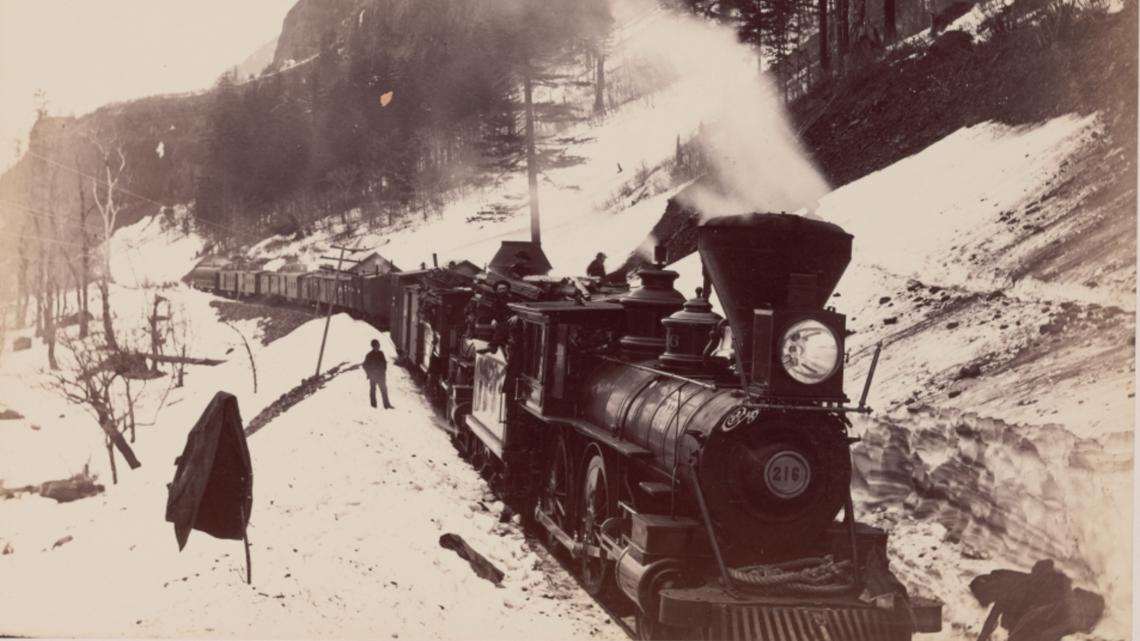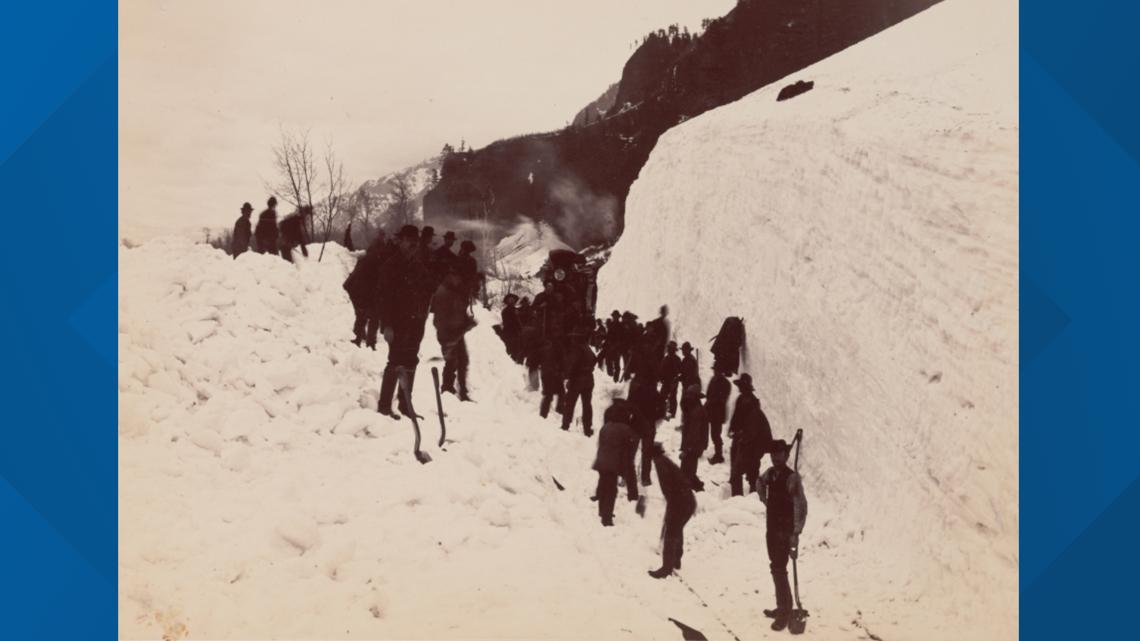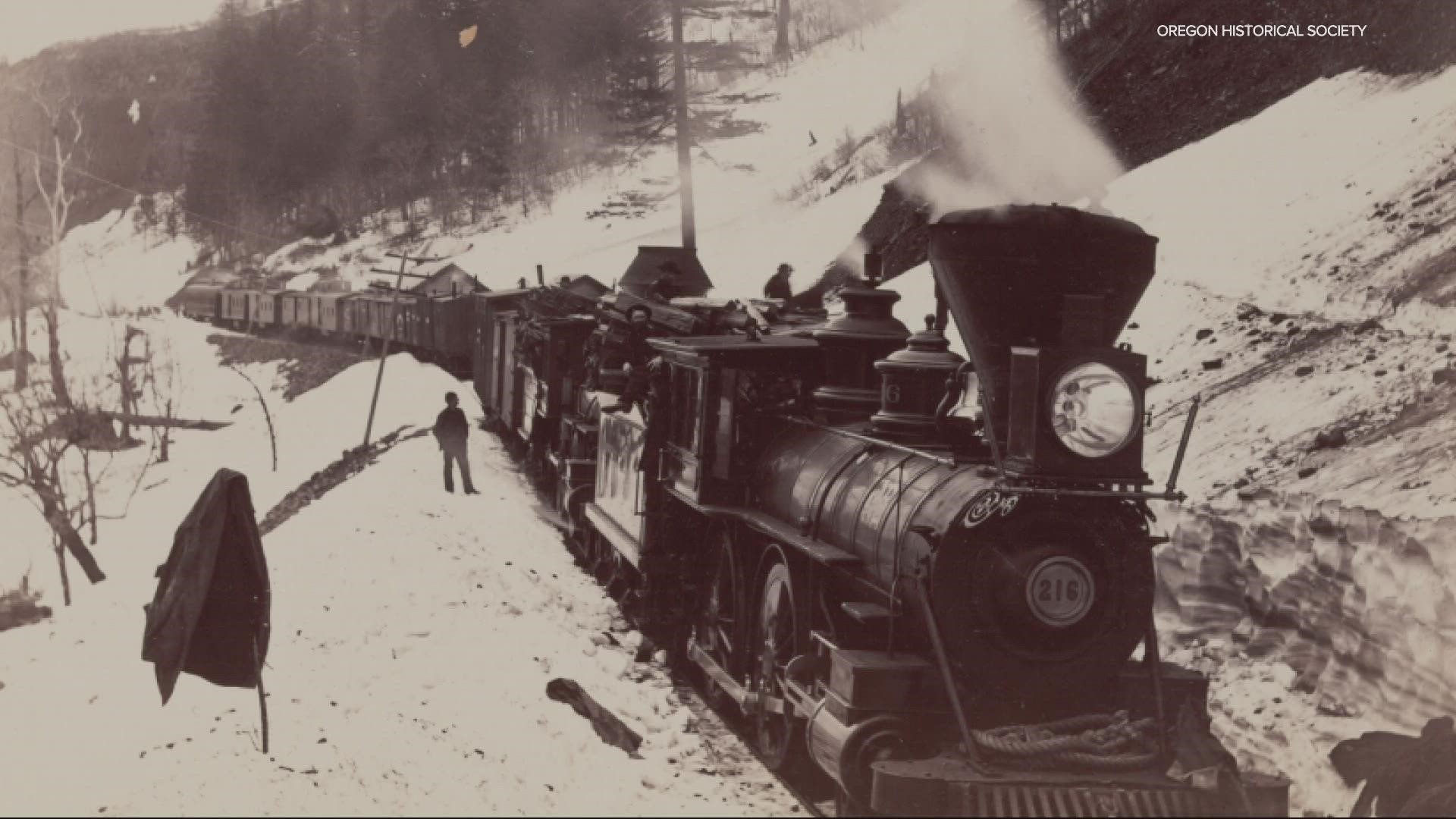CASCADE LOCKS, Ore. — The Columbia River Gorge is no stranger to a major snowstorms, but one in particular was severe enough to become immortalized as the etymology for a creek and state park near Hood River.
It's a story about hunger, survival and working together, and it gave rise to the names Starvation Creek and Starvation Creek State Park.
During the winter of 1884, a heavy snowstorm stranded a train with 148 passengers and crew on board near Hood River.
The steam-powered Pacific Express train left The Dalles for Portland on December 17. But what began as a pre-holiday train ride turned into a fight for survival.
"It ran into a snow drift that was 25 feet high, said Jeanette Kloos, director of Friends of the Columbia River Highway. "It couldn't get through."
Colonel L.S. Howlett was a passenger on the train and documented his experience. His account was published in area newspapers weeks later.
"Suddenly there was a throb and a shock," he wrote on the first day of the incident. He went on to explain that "It was an avalanche and both engines were smothered in a snow bank."


Food quickly became a luxury on the trapped train. Passengers received one meal on the first day, Howlett wrote, brought in on a sled from Hood River. And the snow continued to fall. Food became even more scarce in the subsequent days.
"What would have lasted three days, was now consumed in one," Howlett wrote. "Making matters worse, the train's coal ran out losing a source of heat."
In an article posted on the Oregon Encyclopedia's website, the author notes that the train's benches were burned as a heat source.
"I think it would've been pretty scary for the people that were there, because they didn't know when they were going to get out, or how," Kloos said. "A lot of uncertainty."
But word of the train's predicament spread, and soon help was on the way. Plows were sent in to help clear the snow, and men skied or hiked in from Cascade Locks, Portland and Hood River to help.
Other trains brought in workers to help shovel snow, although some of those trains ended up getting stranded themselves.


The heavy snow made workers feel as if they were taking one step forward and two steps back.
"The storm is worse than ever and all the work done hitherto was undone last night," Howlett wrote on Dec. 22, five days into the incident.
The train was still stuck fast when Christmas arrived a few days later.
"It is still cold and snowing," Howlett wrote. "The first sound that greets my waking ear is Merry Christmas, Henry." The greeting came from "A snow-shoveler trying to pull a frozen boot upon a sockless foot," he wrote.
Photos given to the Oregon Historical Society document the heavy amount of snow that fell and the army of locals that stepped up to help. More than 1,000 men help dig out the stranded trains.
"Some of them were paid for shoveling snow and/or bringing in food," Kloos said.
RELATED: Where the 'X' in PDX comes from
The rescue operation continued for two more weeks. One holiday became another as the stranded passengers rang in the New Year. On Jan. 6, the shovelers broke through the final snow slide.
"It was 21 days before they got to Portland," Kloos said.
Three weeks of surviving a harsh winter gave those that lived through the experience a bigger perspective on the small things.
"... a cracker is a blessing and a potato is a luxury," Howlett wrote.
The passengers' ordeal over those 21 days would eventually become the namesake of the creek near where the train became stranded, as well as the surrounding Oregon State Park. The creek was originally called Starveout Creek, but was eventually changed to its current name of Starvation Creek.
One important footnote about that moniker, however:
"While it is called Starvation Creek, no one actually starved," Kloos said. "They were hungry, they didn't starve. No one died."
And that's what's in a name.
What's in a Name is a series produced by KGW Sunrise Reporter Devon Haskins focused on how places around the Pacific Northwest received their names. If you have an idea for a future segment, send him an e-mail at dhaskins@kgw.com.

